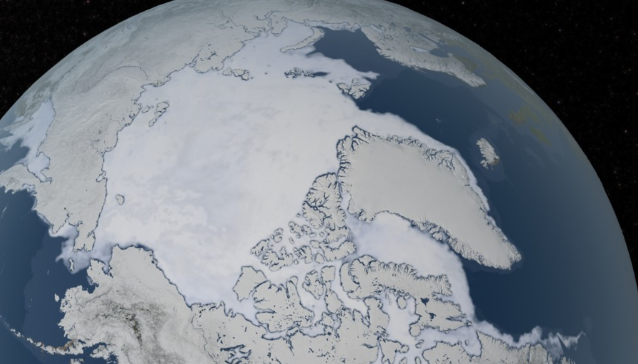Researchers can no longer blame inconvenient cold winters on Arctic warming. No scientific basis, new study shows.
Image: NASA (public domain)
By Die kalte Sonne
(German text translated by P. Gosselin)
The Arctic is warming faster than the mid-latitudes. It’s the so-called Arctic amplification (AA). According to a study by Polvani et al. 2020, half of the Arctic warming is due to ozone-depleting substances – and not CO2. This was of course a great surprise, as we have already reported here. So no wonder that the climate models are going crazy, since they have so far attributed almost the entire warming to CO2.
CO2 has been hopelessly overbooked, as it now turns out.
In Nature Climate Change, a paper by Cohen et al. 2020 has been published and it shakes another myth. In the past, researchers were too happy to tell us that strong Arctic warming leads to harsh winters in mid-latitudes. However, there is a problem: the models are largely unable to reconstruct this presumed relationship: The paper finds:
Divergent consensuses on Arctic amplification influence on midlatitude severe winter weather
The Arctic has warmed more than twice as fast as the global average since the late twentieth century, a phenomenon known as Arctic amplification (AA). Recently, there have been considerable advances in understanding the physical contributions to AA, and progress has been made in understanding the mechanisms that link it to midlatitude weather variability. Observational studies overwhelmingly support that AA is contributing to winter continental cooling. Although some model experiments support the observational evidence, most modelling results show little connection between AA and severe midlatitude weather or suggest the export of excess heating from the Arctic to lower latitudes. Divergent conclusions between model and observational studies, and even intramodel studies, continue to obfuscate a clear understanding of how AA is influencing midlatitude weather.”



